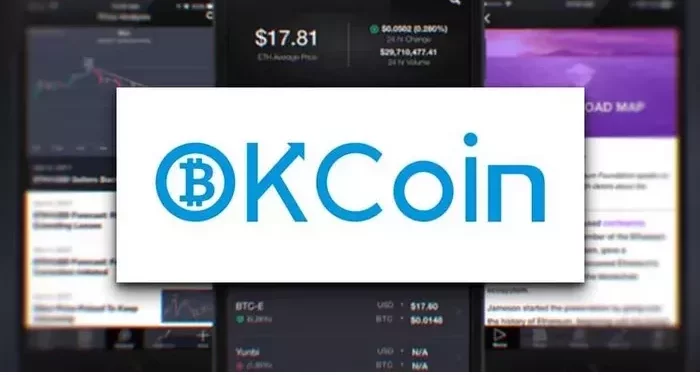In recent years, the cryptocurrency industry has witnessed remarkable growth and has become a significant part of the global financial landscape. OKCoin, as one of the prominent cryptocurrency exchange platforms, has drawn attention regarding its acceptance and support in different countries. The regulatory and operating environment for OKCoin varies widely across the globe, which has a profound impact on its business expansion and development.
United States
The United States presents a highly intricate and fragmented regulatory scenario. At the state level, there is a patchwork of regulations. For instance, New York’s BitLicense regime is a prime example. To obtain this license, OKCoin would need to meticulously adhere to a plethora of requirements. Stringent anti-money laundering (AML) procedures would involve comprehensive monitoring and reporting of all transactions to detect and prevent illicit financial flows. Know-your-customer (KYC) protocols would demand in-depth verification of the identities and backgrounds of customers, including their source of funds and the purpose of their transactions.
The Securities and Exchange Commission (SEC) and the Commodity Futures Trading Commission (CFTC) also play crucial roles. The SEC scrutinizes aspects related to whether certain cryptocurrencies or token offerings might fall under securities regulations, while the CFTC oversees the trading of cryptocurrency derivatives. This complex web of regulations means that OKCoin’s path to operation in the US is not straightforward. However, the existence of these regulatory pathways does signal that with proper compliance, it can carve out a space in the market. The intention behind such a complex regulatory structure is twofold: to foster innovation in the cryptocurrency space and to ensure the protection of investors and the stability of the financial system.
Japan
Japan has been a pioneer in embracing cryptocurrencies. By legally recognizing bitcoin and other digital currencies as a legitimate form of payment, it has set a precedent. The regulatory framework established for cryptocurrency exchanges is both comprehensive and detailed. For OKCoin to gain entry into the Japanese market, it must first register with the relevant financial authorities. This registration process involves a thorough examination of the exchange’s operational capabilities, security measures, and compliance systems. The AML and KYC requirements are not only strict but also continuously evolving. OKCoin would need to have robust systems in place to monitor and report any suspicious transactions promptly.
Additionally, maintaining accurate accounting and reporting standards is of utmost importance. The Japanese government’s proactive approach stems from the belief that a well-regulated cryptocurrency industry can act as a catalyst for fintech innovation. It also aims to shield consumers from the risks associated with fraud and illegal activities in the volatile cryptocurrency market. This environment offers OKCoin a golden opportunity to expand its footprint and establish a significant presence in one of the world’s major economies.
Singapore
Singapore has long been lauded for its fintech-friendly policies. The Monetary Authority of Singapore (MAS) has been actively engaged in shaping the regulatory landscape for the cryptocurrency and blockchain industry. While it does not offer unfettered support, it encourages the growth of legitimate and compliant cryptocurrency-related enterprises. OKCoin could potentially set up operations in Singapore by adhering to MAS guidelines. These guidelines focus on multiple fronts.
Firstly, ensuring the integrity of the market is crucial. This involves measures to prevent market manipulation, insider trading, and other unethical practices. Secondly, safeguarding investors is a top priority. OKCoin would need to provide clear and accurate information to investors, manage risks effectively, and have appropriate dispute resolution mechanisms in place. Lastly, preventing the use of cryptocurrencies for illegal purposes such as money laundering and terrorist financing is non-negotiable. Given Singapore’s status as a premier global financial hub, it presents a fertile ground for OKCoin to explore diverse business opportunities, collaborate with local fintech firms, and access a pool of sophisticated investors.
Malta
Malta has rapidly emerged as a hotspot for cryptocurrency and blockchain companies. It has crafted a comprehensive suite of laws and regulations to attract such businesses. OKCoin might find a highly receptive environment in Malta. The country offers a clear and well-defined legal framework for initial coin offerings (ICOs), cryptocurrency exchanges, and other blockchain-based activities. To operate in Malta, OKCoin would need to comply with regulations related to corporate governance. This includes having a proper board structure, transparent decision-making processes, and effective internal controls.
The AML and KYC requirements are also stringently enforced. The Maltese government’s ambitious goal of positioning the country as a global leader in the blockchain economy could open doors for OKCoin. It could provide a platform for OKCoin to expand its European operations, engage in research and development initiatives, and partner with other blockchain and fintech ventures in the region. This would not only enhance OKCoin’s business prospects but also contribute to the growth and innovation of the Maltese blockchain ecosystem.
South Korea
South Korea has a bustling and highly dynamic cryptocurrency market. The government has been actively involved in regulating the market to curb illegal activities. Market manipulation and fraud have been major concerns, and regulations have been put in place to address these issues. OKCoin could operate in South Korea if it meets the exacting requirements set by local regulatory authorities. These requirements span various aspects. Ensuring the security of user funds is of paramount importance. OKCoin would need to implement state-of-the-art security measures such as multi-factor authentication, cold storage for digital assets, and regular security audits.
Compliance with AML and KYC procedures is also essential. This involves verifying the identities of customers, monitoring their transactions for any signs of illegal activity, and reporting to the authorities as required. Additionally, cooperation with regulatory inspections is mandatory. The South Korean market offers a large and tech-savvy user base, which is highly attractive for OKCoin. However, successfully navigating the regulatory environment is the key to unlocking the potential of this market.
Switzerland
Switzerland, a traditional bastion of global finance, has also shown an open attitude towards the cryptocurrency and blockchain industry. It has a well-developed regulatory environment, especially in regions like Zug, which has earned the moniker “Crypto Valley.” OKCoin could consider establishing a foothold in Switzerland. The Swiss regulatory authorities place significant emphasis on several aspects. The proper classification of cryptocurrencies is crucial as it determines the regulatory treatment they receive.
Compliance with AML and KYC norms is non-negotiable. This includes comprehensive due diligence on customers, reporting of suspicious transactions, and maintaining accurate records. Protecting the interests of investors is also a core focus. OKCoin would need to provide transparent and reliable services, disclose risks adequately, and have mechanisms in place to handle customer complaints and disputes. Operating in Switzerland could enhance OKCoin’s reputation and credibility in the global financial community. It could also provide access to a rich and diverse financial ecosystem, a pool of highly skilled blockchain and fintech talent, and opportunities for strategic partnerships and collaborations.
Estonia
Estonia has been actively promoting its e-residency and digital economy initiatives. It has a regulatory framework in place for cryptocurrency exchanges. OKCoin might find support in Estonia. The country offers a relatively streamlined process for registering and operating a cryptocurrency business compared to some other jurisdictions.
However, this does not mean a lack of regulatory rigor. OKCoin would still need to comply with AML, KYC, and other regulatory stipulations. The AML requirements would involve monitoring transactions for signs of money laundering, ensuring proper record-keeping, and cooperating with international AML efforts. KYC procedures would include verifying the identities of customers and understanding the nature of their business. Estonia’s advanced digital infrastructure and innovation-friendly policies could offer several advantages for OKCoin. It could lead to cost-effective operations, access to a growing European market, and opportunities to participate in the country’s digital innovation ecosystem.

















